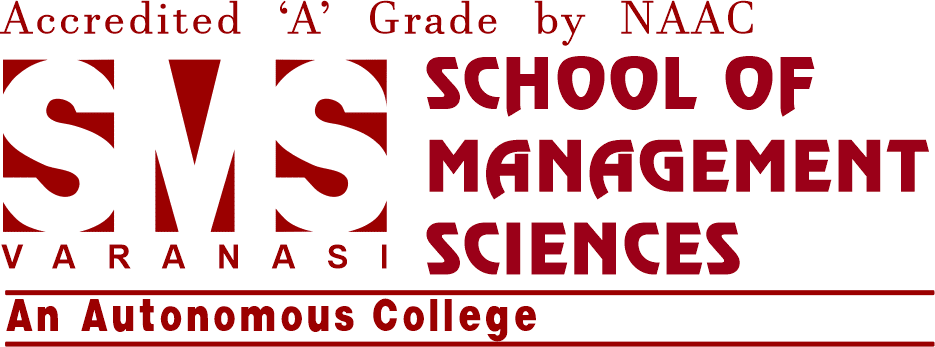If you are someone who’s currently pursuing a B.Com degree or have just graduated and are confused between CMA vs MBA, which one is better? You are not alone.
In today’s age and time, there is a plethora of career options after B.Com. Choosing between professional courses like CMA vs MBA can be overwhelming. Both of these courses open many doors to a good career path. The journey, outcome and skills required to pursue either of the degrees are different, but still they remain the top choices as a course after B.Com.
A CMA dwells into financial analysis and cost control, an MBA is all about providing a broader perspective of business and its functioning, covering areas like marketing and human resources, etc. With so much on your plate, how do you decide between MBA or CMA, which is better and which one aligns best with your goals?
If you have been searching and comparing between CMA vs MBA, then keep reading till the end because today we will be breaking down the key differences, career scope and pros & cons between the two, so that you can make a more sound and informed decision.
CMA Vs MBA: Key Differences
Before we jump into the conclusions, let us first understand what the key differences are between CMA vs MBA and what both of these degrees offer.
CMA – Cost and Management Accountant
Being a globally recognised professional degree, the CMA qualification is designed for students wanting to build their expertise in costing, financial planning, analysis and decision making, etc.
In India, it is offered by the Institute of Cost Accountants of India (ICMAI), and globally, it’s governed by the Institute of Management Accountants (IMA), USA.
The course is divided into three levels:
- CMA Foundation
- CMA Intermediate
- CMA Final
Eligibility, Duration and Syllabus
Students who have done 10+2 can go for the foundation level, while those who have a graduation in their hands can opt for the CMA Intermediate.
It takes about 2.5 to 3 years (depending on exam clearance) to complete this professional qualification.
The CMA syllabus covers areas like Cost Accounting, Strategic Management, Taxation, and Corporate Laws.
MBA – Master of Business Administration
An MBA is a post-graduate degree. Being the most sought-after degree globally, it focuses on Business and its working, like strategic management, leadership and all.
An MBA focuses on specialisation such as:
- Finance
- Marketing
- Human Resources (HR)
- Operations
- Entrepreneurship
- Business Analytics
Eligibility, Duration and Syllabus
To do an MBA from top B-schools, you have to appear for entrance examinations such as CAT, XAT, MAT, NMAT (India) or GMAT, GRE (Global).
In India, an MBA takes 2 years to finish, while globally it may be shorter than that.
An MBA syllabus is around Finance, HR, Marketing, etc.
CMA Vs MBA: Career Opportunities after MBA and CMA
When it comes to career paths, both of them provide rewarding career options which include learning and growth. Let’s see what are the jobs after CMA and MBA.
Jobs after CMA
CMA develops your skillset for specialised roles such as cost and management accounting, budgeting and regulatory compliance.
The sectors looking for CMA grads are manufacturing, infrastructure, energy, etc. Basically, all the sectors that rely heavily upon cost efficiency and financial oversight have a high demand for CMA graduates.
There are many great opportunities for freshers and experienced CMAs. Freshers could start off their career as Internal Auditors, or Budget Analysts, Cost Accountants, etc., and once they have enough experience, they could go with Finance Manager, Chief Financial Officer (CFO), or Controller, etc.
CMAs are often found in big corporations and MNCs, as there is a great value for financial discipline and strategic cost management. You can find jobs after CMA in companies like ITC, TATA, Nestlé, etc.
Career Options After MBA
An MBA degree is more versatile and management-oriented, and it is for those who wish to take on leadership roles across various domains.
Careers in MBA depend upon the type of specialisation you have done. For example, career options after MBA in Marketing are in roles like Brand Manager and Sales Head, while an MBA in Finance might take you to roles such as Investment Banker or Equity Analyst.
An MBA is very versatile in nature, so it can be applied across various industries like banking, e-commerce or startups, etc. Furthermore, if you have done your MBA from top B-schools such as IIMs, ISB and other global institutes like Wharton, etc., then it can fast-track your career into senior management roles like CEO, COO, etc.
A fresher MBA start off in a middle management or analyst role and as they gain experience, they can transition into more advanced leadership roles.
Salary Comparison: CMA vs MBA
The earning potential of both CMA and MBA depends upon several factors, like the reputation of the institute you have completed your MBA from, the amount of work experience you have, along with industry and job location.
CMA salary
In India, a CMA fresher can expect a salary of around ₹6 to ₹8 LPA, and it could go up to ₹10 to ₹15 LPA after 5-7 years of experience.
The value of a CMA increases over time as it reflects technical mastery and professional credibility in financial functions.
MBA salary
Salary of an MBA can vary widely depending on specialisation and the institute where you did your MBA.
An MBA from a top-tier institute could give you a package of ₹18 to ₹30 LPA, while lower tiers can set you up with ₹4 to ₹8 LPA as a starting salary package with steady growth.
Due to a border skill set in strategy, leadership, and communications, an MBA have a tendency for faster upward movement.
Who Should Choose CMA or MBA?

If you enjoy playing with numbers, then cost-cutting and financial analysis could become your second nature. And if you are aiming for specialised roles in accounting, auditing or financial planning, especially in manufacturing, FMCG or consulting industries, then go for a CMA.
If you have an inclination towards leadership roles, managing people, and strategic decision-making, and are aiming to go for roles in marketing, HR, Finance, operations, etc, then go for an MBA.
Conclusion: MBA or CMA, Which Is Better?
If you are still confused about choosing between CMA vs MBA, then keep in mind that it all boils down to your personal preference and what you like to do the most. There’s no one-size-fits-all when choosing between CAM vs MBA. No doubt they both offer great career prospects, but have different journeys, skillset requirements and long-term goals. So choose as per your interest, where you feel more aligned.
If you are someone who loves numbers and is thinking of cost-cutting and financial analysis roles, then CMA might be a perfect choice for you. On the other hand, if you want to learn everything about business and its functioning and aspire to become a manager, team leader or entrepreneur, then go for an MBA as it offers diverse career options.
While choosing between CMA vs MBA, consider factors like:
- Time commitment
- Course fees
- Return on investment
- Global mobility
- Your personal career vision
The best choice among the two totally depends upon your interest and where you see yourself in the next 5 to 10 years.
Read also : LinkedIn for Students: LinkedIn Job Search Tips
Laws for AI: Who is Liable When a Machine Makes a Mistake?

